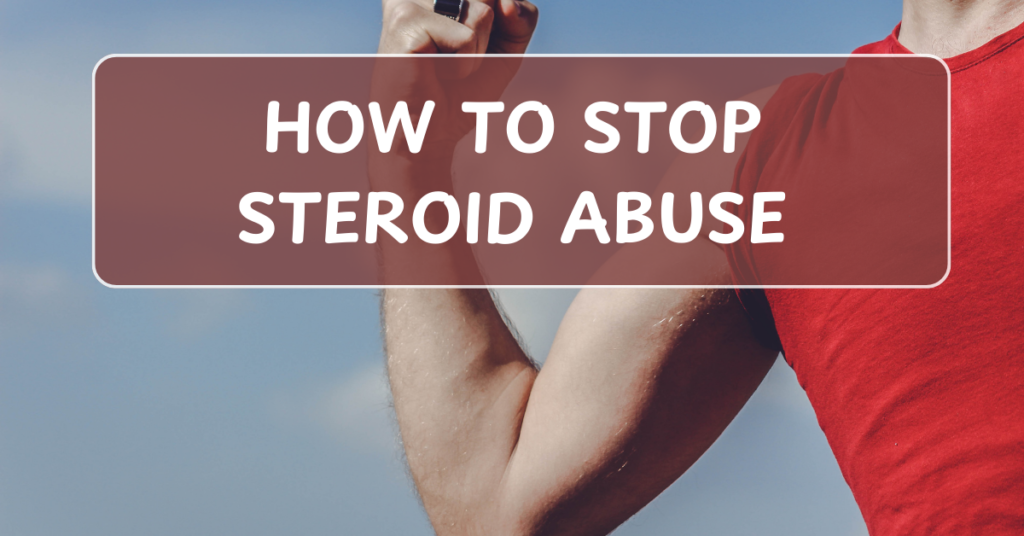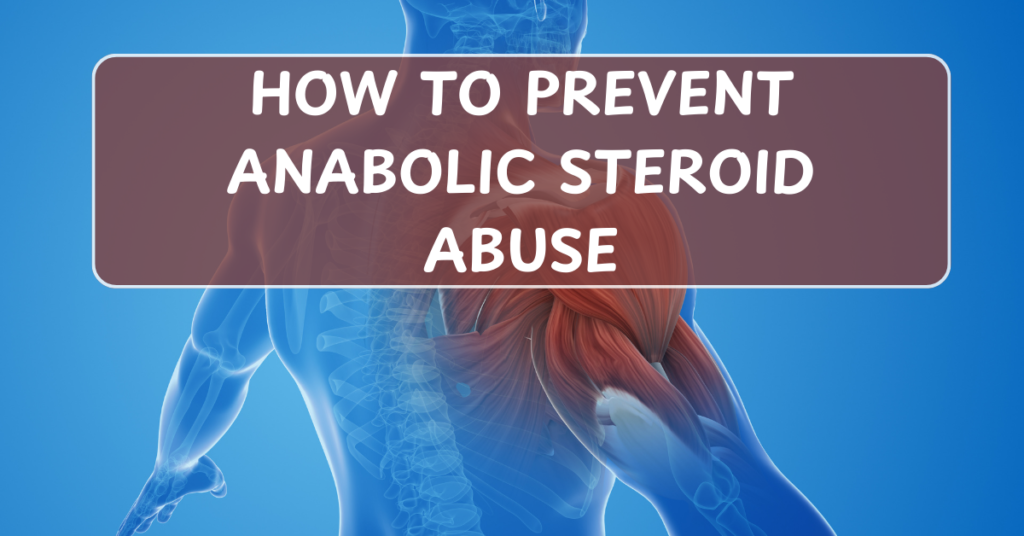
Steroid abuse, particularly anabolic steroids, can have devastating consequences on both physical and mental health. Stopping steroid abuse requires a multi-pronged approach that involves education, intervention, support, and long-term strategies to maintain a healthy lifestyle. Whether you’re trying to help yourself or someone else, here are some effective steps to stop steroid abuse:
1. Recognize the Signs of Steroid Abuse
The first step to stopping steroid abuse is recognizing the signs. Both physical and psychological symptoms can indicate misuse of anabolic steroids, such as:
- Physical Symptoms: Acne, hair loss, increased body hair, changes in sexual function, and liver or kidney problems.
- Psychological Symptoms: Aggressive behavior, mood swings, paranoia, or depression.
- Behavioral Signs: Overuse of steroids for muscle growth, frequent injuries, or withdrawing from social activities.
If you or someone you know is showing signs of steroid abuse, it’s important to address the issue as soon as possible.
2. Seek Professional Help
Steroid abuse can be difficult to stop on your own, especially if the person is physically or psychologically dependent on the drug. Seeking professional help from a healthcare provider is often the best route for recovery.
- Consult a Doctor: A healthcare professional can assess the situation and provide a treatment plan to gradually reduce steroid use safely. They can also monitor for any negative effects on the body.
- Addiction Treatment: If the abuse has turned into a dependency, treatment centers specializing in substance abuse can offer tailored programs that include detoxification, counseling, and support groups.
3. Gradual Reduction (Tapering Off)
Stopping steroid use suddenly can be harmful to the body, leading to withdrawal symptoms. A doctor will likely recommend a process called “tapering off,” which involves gradually decreasing the dosage of steroids over time to prevent withdrawal and support the body’s natural hormone production.
- Supervised Tapering: Steroids should be reduced under medical supervision to minimize withdrawal symptoms, which may include fatigue, depression, and loss of muscle mass.
- Hormonal Therapy: For individuals whose hormone levels have been significantly impacted by steroid use, doctors may prescribe medications to help restore natural hormone levels.
4. Psychological Support and Counseling
Steroid abuse often has underlying psychological factors, such as body image issues, low self-esteem, or performance anxiety. Addressing these psychological issues is crucial for long-term recovery.
- Therapy and Counseling: Cognitive-behavioral therapy (CBT) can help individuals understand the reasons behind their steroid abuse, manage triggers, and replace harmful habits with healthier coping strategies.
- Support Groups: Connecting with others who are going through similar experiences can provide emotional support and accountability. Support groups, such as those for addiction recovery, can help individuals stay committed to quitting steroids.
5. Replace Steroid Use with Healthy Alternatives
Encouraging healthier alternatives to enhance muscle growth, fitness, and performance can significantly reduce the temptation to abuse steroids.
- Exercise Programs: Focus on a balanced fitness routine that incorporates strength training, cardiovascular exercise, and flexibility. A certified personal trainer can design a safe and effective program that emphasizes muscle growth without steroids.
- Proper Nutrition: A well-balanced diet rich in protein, healthy fats, and carbohydrates can promote muscle growth naturally. A nutritionist can provide guidance on creating a diet plan that supports fitness goals without relying on steroids.
- Supplements: For those seeking performance enhancement, safe and legal supplements such as creatine, protein powder, or branched-chain amino acids (BCAAs) can be effective alternatives to steroids. Always consult a healthcare provider before starting any supplement regimen.
6. Build a Strong Support System
Support from family, friends, and mentors is crucial in helping someone quit steroid abuse. Positive relationships and encouragement can provide the strength needed to overcome the temptation to use steroids.
- Talk to Loved Ones: Open and honest communication about the desire to quit and the struggles faced during the process is important. Loved ones can offer support, understanding, and motivation.
- Find a Mentor: Having a mentor who understands the challenges of overcoming steroid abuse can help provide guidance and accountability. This could be a coach, therapist, or a trusted friend who has experienced similar struggles.
7. Focus on Long-Term Health and Fitness Goals
Shifting the focus away from quick fixes like steroids and toward long-term health and fitness goals is essential for sustained recovery.
- Set Realistic Goals: Rather than striving for rapid results, set achievable goals for muscle growth, strength, and fitness. Recognizing incremental progress is vital in maintaining motivation without resorting to steroids.
- Celebrate Non-Appearance-Based Achievements: Celebrate milestones that don’t focus on appearance, such as improved stamina, strength, or overall well-being. This can help shift the mindset from superficial results to overall health and fitness.
8. Avoid Triggers and Temptations
Certain situations, environments, or people can trigger the desire to return to steroid use. It’s important to identify and avoid these triggers to prevent relapse.
- Remove Access to Steroids: If steroids are readily available, make sure to eliminate that access by disposing of any remaining substances and avoiding environments where they might be used.
- Stay Away from Negative Influences: Steer clear of people who may encourage or normalize steroid abuse. Surrounding oneself with positive influences can help maintain a commitment to recovery.
9. Monitor and Maintain Progress
Recovery from steroid abuse is a continuous process. Regular monitoring of physical and mental health is important for maintaining progress and preventing relapse.
- Frequent Checkups: Regular visits to a healthcare professional for monitoring hormone levels, mental health, and overall well-being can help keep the recovery on track.
- Track Emotional and Physical Changes: Keep track of mood, energy levels, and physical changes during the recovery process. This helps to identify any potential issues and take proactive steps to address them.
10. Promote Body Positivity and Self-Acceptance
Encouraging a healthy relationship with one’s body and self-image is crucial in preventing relapse into steroid abuse. Body positivity movements can help individuals appreciate their bodies as they are and avoid the pressure to achieve an unrealistic ideal.
- Positive Body Image: Encourage individuals to focus on strength, health, and overall well-being rather than appearance. This shift in perspective can help reduce the desire to use steroids to enhance muscle mass or appearance.
- Mindfulness and Acceptance: Practices like mindfulness, meditation, and yoga can help foster self-acceptance and a positive mindset that values health over appearance.
Conclusion
Stopping steroid abuse is a challenging but achievable process. With the right support, education, and healthier alternatives, individuals can break free from the cycle of abuse and improve their health, both physically and mentally. Whether through professional help, peer support, or a focus on long-term fitness goals, the journey to quitting steroids requires patience, commitment, and a comprehensive approach. By addressing the root causes of abuse and promoting positive, sustainable changes, it’s possible to stop steroid abuse and lead a healthier, drug-free life.


